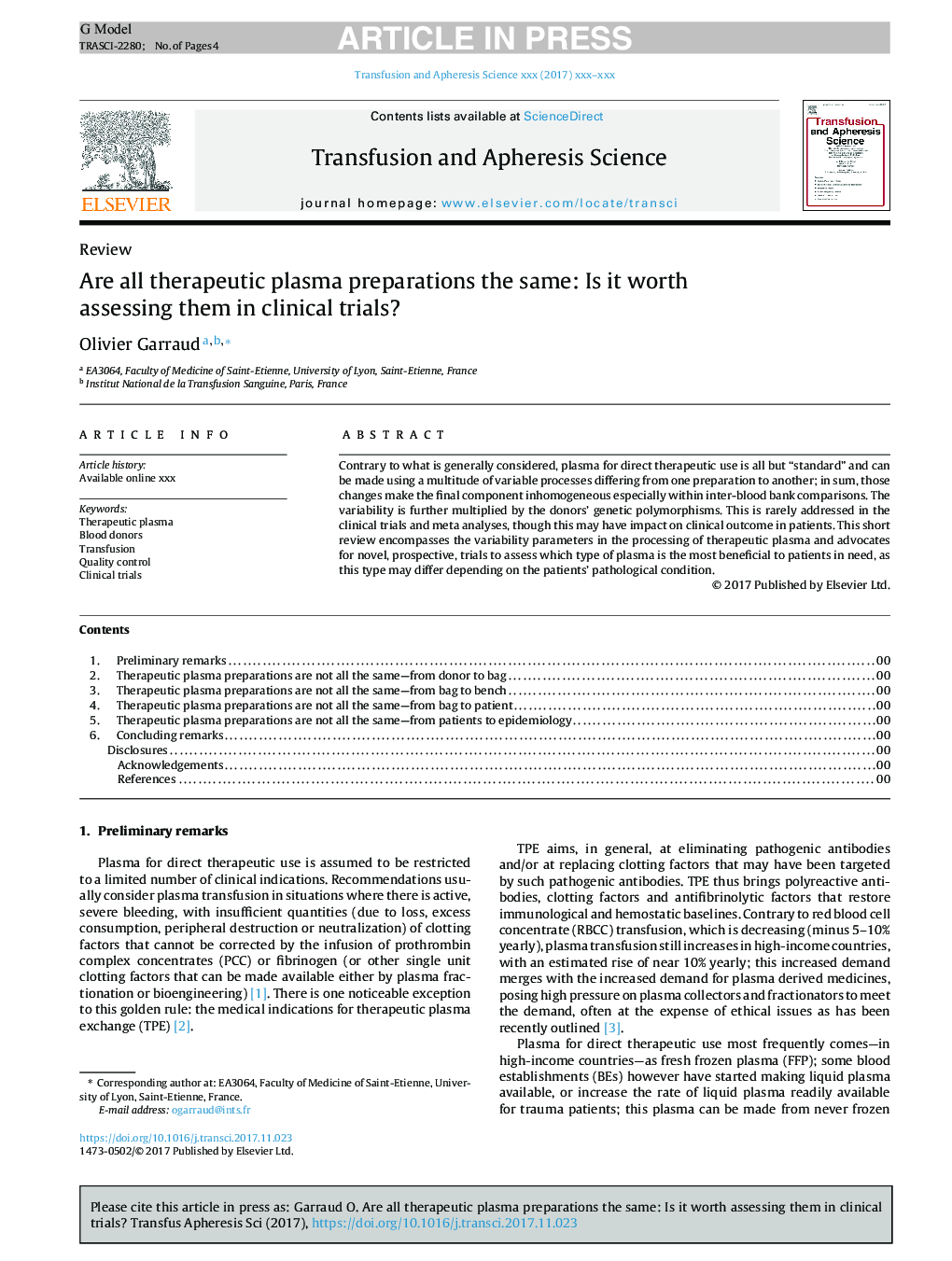| Article ID | Journal | Published Year | Pages | File Type |
|---|---|---|---|---|
| 8735121 | Transfusion and Apheresis Science | 2017 | 4 Pages |
Abstract
Contrary to what is generally considered, plasma for direct therapeutic use is all but “standard” and can be made using a multitude of variable processes differing from one preparation to another; in sum, those changes make the final component inhomogeneous especially within inter-blood bank comparisons. The variability is further multiplied by the donors' genetic polymorphisms. This is rarely addressed in the clinical trials and meta analyses, though this may have impact on clinical outcome in patients. This short review encompasses the variability parameters in the processing of therapeutic plasma and advocates for novel, prospective, trials to assess which type of plasma is the most beneficial to patients in need, as this type may differ depending on the patients' pathological condition.
Related Topics
Health Sciences
Medicine and Dentistry
Hematology
Authors
Olivier Garraud,
